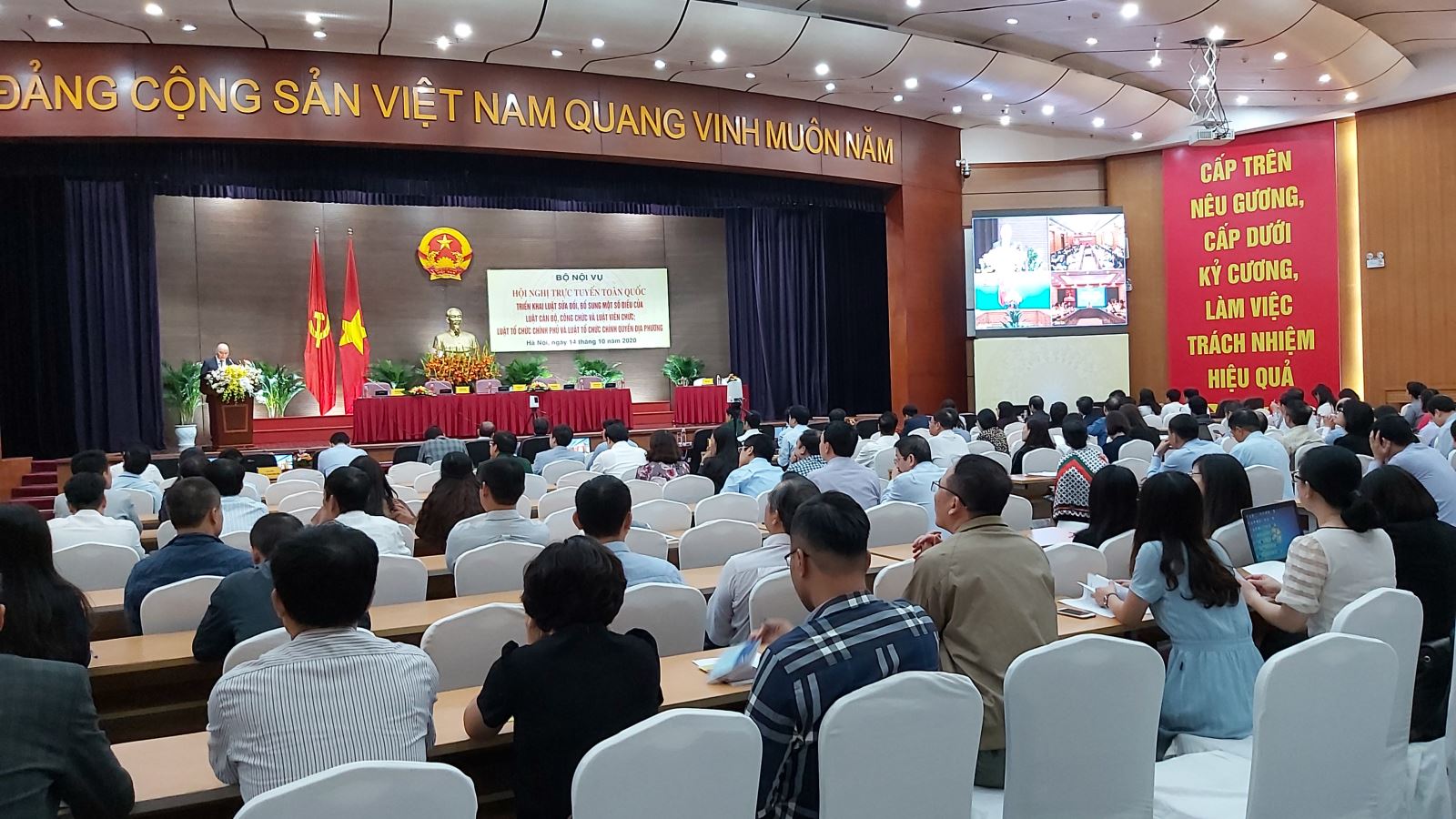06 Rules of segmentation of powers of local governments in Vietnam
What are the rules of segmentation of powers of local governments in Vietnam? – Viet Anh (Ninh Thuan)

06 Rules of segmentation of powers of local governments in Vietnam (Internet image)
Regarding this issue, LawNet would like to answer as follows:
1. What types of administrative units in Vietnam?
According to Article 2 of the Law on organizing the local government 2015, the administrative units of the Socialist Republic of Vietnam shall include:
- Municipalities and provinces (hereinafter referred to as province or provincial level);
- Suburban, urban districts and provincial cities, and municipality-controlled cities (hereinafter referred to as district or district level);
- Communes, wards or commune-level towns (hereinafter referred to as commune or communal level);
- Special administrative – economic units.
2. 06 Rules of segmentation of powers of local governments in Vietnam
Rules of segmentation of powers of local governments in Vietnam under Clause 2, Article 11 of the Law on organizing the local government 2015 (amended in Clause 4, Article 2 of the Law on amendments to some articles of the law on government organization and law on local government organization 2019) include:
(1) Ensure that the state management is carried out consistently with institutions, policies, strategies and planning in different industries and sectors; ensure the consistency and transparency of the national administrative system;
(2) Enable local governments at administrative units to exercise their autonomy and responsible autonomy to perform state management duties within particular areas in accordance with legal regulations;
(3) Firmly combine state management by sectors with this by territories, and clearly distinguish duties to state management of socio-economic operations taking place throughout a geographical region which is taken on by local governments at different levels;
(4) Segmentation of powers must conform to rural, urban and island conditions and features as well as particular characteristics of industries and sectors;
(5) Issues involving more than two commune-level administrative units shall be tackled under the authority of district-level local governments; those involving more than two district-level administrative units shall be tackled under the authority of province-level local governments;
Those involving more than two province-level administrative units shall be tackled under the authority of centrally-governed state organs, unless otherwise stipulated by laws, resolutions of the National Assembly, ordinances, resolutions of the National Assembly Standing Committee and Government’s decrees;
(6) The delegation of powers to local governments at different levels shall ensure that financial and personnel conditions and other necessary conditions are satisfied, and shall be associated with the adoption of the inspection mechanism.
Local governments shall exercise powers and perform duties and bear responsibility within their granted powers.
Regulations on decentralization of powers to local governments
Specifically, according to Article 13 of the Law on organizing the local government 2015 (amended in the Law on amendments to some articles of the law on government organization and law on local government organization 2019) stipulates the decentralization of local governments as follows:
- Based on working requirements, possibility and conditions, and specific states of each locality, central and locally-governed state organs shall be entitled to decentralize one or several duties and powers within their competence to inferior-level local governments or state organs in a continual and regular manner, unless otherwise prescribed by laws.
- Decentralization must adhere to principles stipulated in Clause 2 Article 11 hereof and must be prescribed in legislative documents issued by decentralizing state organs which should specify duties and powers decentralized to local governments or inferior-level state organs, and responsibilities of decentralizing and decentralized state organs.
- Superior regulatory agencies shall, upon delegating tasks and powers to local governments or inferior regulatory agencies, shall ensure that financial and personnel conditions and other necessary conditions are satisfied to perform these delegated tasks or exercise these delegated powers, and inspect and provide guidance on performance of delegated tasks and exercise of delegated powers as well as bear responsibility for the result thereof.
- Decentralized state organs shall be held responsible to decentralizing state organs for implementation of decentralized duties and powers. Based on actual conditions of each locality, locally-controlled state organs shall be entitled to re-decentralize duties and powers decentralized by superior-level state organs to inferior-level local governments or state organs but must obtain consent from initial-decentralization state organs.
- Key word:
- local governments
- in Vietnam
- Cases of land rent exemption and reduction under the latest regulations in Vietnam
- Economic infrastructure and social infrastructure system in Thu Duc City, Ho Chi Minh City
- Regulations on ordination with foreign elements in religious organizations in Vietnam
- Increase land compensation prices in Vietnam from January 1, 2026
- Determination of land compensation levels for damage during land requisition process in Vietnam
- Who is permitted to purchase social housing according to latest regulations in Vietnam?
-

- Emergency response and search and rescue organizations ...
- 10:29, 11/09/2024
-

- Handling of the acceptance results of ministerial ...
- 09:30, 11/09/2024
-

- Guidance on unexploded ordnance investigation ...
- 18:30, 09/09/2024
-

- Sources of the National database on construction ...
- 16:37, 09/09/2024
-

- General regulations on the implementation of administrative ...
- 11:30, 09/09/2024
-

- Notable new policies of Vietnam effective as of ...
- 16:26, 11/04/2025
-
.Medium.png)
- Notable documents of Vietnam in the previous week ...
- 16:21, 11/04/2025
-
.Medium.png)
- Notable documents of Vietnam in the previous week ...
- 16:11, 02/04/2025
-
.Medium.png)
- Notable new policies of Vietnam to be effective ...
- 16:04, 02/04/2025
-
.Medium.png)
- Notable new policies of Vietnam effective from ...
- 14:51, 21/03/2025
 (1).png)
 Article table of contents
Article table of contents
